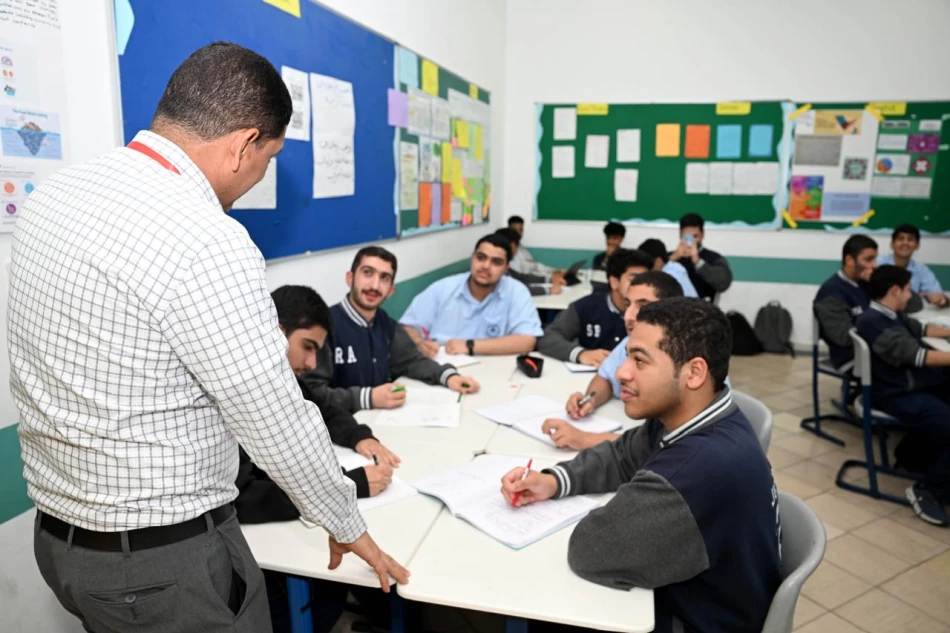
Student, Parent, and School Obligations Outlined in 2025-2026 Charter
UAE Schools Launch Mandatory Partnership Charter Defining Roles for Students, Parents, and Administrators
The UAE's Ministry of Education has introduced a comprehensive partnership charter for the 2025-2026 academic year that formally codifies the responsibilities of students, parents, and school administrations with four specific commitments each. This regulatory framework represents a significant shift toward shared accountability in education, positioning parents as essential partners rather than passive stakeholders in their children's academic journey.
A Strategic Framework for Educational Excellence
The charter functions as a regulatory document that clearly defines the rights and duties of all parties involved in the educational process. Its primary objective is to establish a safe and stimulating learning environment that contributes to developing generations capable of meeting the UAE's future aspirations.
This initiative reflects the UAE's broader educational transformation strategy, which has consistently emphasized innovation and quality improvement since the launch of the UAE Vision 2071. The formalization of these partnerships through binding commitments signals a maturation of the country's education system, moving beyond traditional models toward more collaborative approaches.
Building Trust Through Structured Cooperation
The charter emphasizes creating a balanced relationship based on trust and cooperation between schools and parents. This approach aims to enhance educational quality while instilling moral and educational values in students. The document explicitly recognizes parents as fundamental partners in the educational process, sharing responsibility with schools for ensuring students' academic, behavioral, and health success.
Parental Responsibilities: Beyond Financial Obligations
The charter outlines four key parental commitments that extend far beyond traditional fee payment expectations. Parents must actively instill positive values and behaviors in their children while strengthening national identity and community responsibility. They are required to monitor their children's academic attendance, ensure compliance with examination schedules, and provide a supportive home environment.
Significantly, the charter mandates timely payment of school fees and continuous cooperation with schools to address any challenges their children may face. This holistic approach recognizes that educational success requires consistent engagement across multiple dimensions of a child's development.
School Obligations: Creating Safe and Inclusive Environments
Schools bear equally specific responsibilities under the charter. They must provide safe educational environments free from discrimination and bullying while ensuring effective communication channels that enable parents to monitor their children's performance. This commitment addresses growing global concerns about school safety and mental health support.
Educational institutions are also required to provide academic, psychological, and social support to students, implement health and safety requirements across school facilities and transportation, and maintain public property. These obligations reflect international best practices in comprehensive student support systems.
Student Accountability and Active Participation
The charter places clear expectations on students themselves, emphasizing positive behavior, respect for school regulations, consistent attendance, and adherence to uniform policies. Students must actively participate in both classroom and extracurricular activities while maintaining educational property.
Assessment Integrity and Regulatory Compliance
The document addresses evaluation and examination processes, mandating compliance with ministry-issued assessment regulations. It explicitly prohibits any violations or practices that could compromise the integrity of the educational process, reflecting growing global emphasis on academic honesty and standardized evaluation methods.
Implementation and Renewal Framework
The charter operates on an annual basis with automatic renewal as long as students remain enrolled in their respective schools. This structure provides stability while allowing for periodic review and adjustment based on evolving educational needs and policy changes.
Regional Context and Global Implications
This initiative positions the UAE alongside other progressive education systems that emphasize stakeholder accountability. Similar partnership models have shown success in Singapore and parts of Canada, where formalized parent-school agreements have contributed to improved academic outcomes and reduced behavioral issues.
The charter's emphasis on national identity and community responsibility also reflects broader trends across Gulf Cooperation Council countries, where educational systems increasingly balance global competitiveness with cultural preservation and civic engagement.
Long-term Vision for Educational Excellence
The Ministry of Education frames this charter as part of its commitment to enhancing community partnership and activating the complementary role among all elements of the educational system. This approach aligns with the UAE's vision of preparing a generation equipped with knowledge, national values, and capabilities for creativity, innovation, and global competition.
The success of this initiative will likely influence educational policy across the region, potentially serving as a model for other countries seeking to formalize stakeholder responsibilities in education while maintaining cultural values and national identity.
Most Viewed News

 Sara Khaled
Sara Khaled






